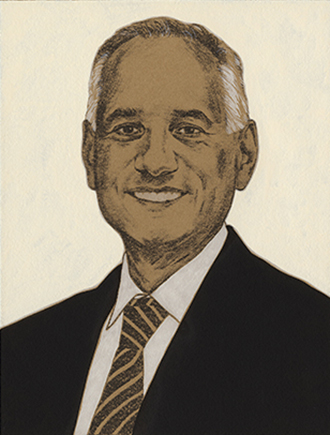 Ted Eliopoulos, CalPERS CIOScalability drove the decision by the California Public
Employees’ Retirement System (CalPERS) to unwind its hedge
fund program, above issues of cost and complexity, the
pension’s CIO has said.
Ted Eliopoulos, CalPERS CIOScalability drove the decision by the California Public
Employees’ Retirement System (CalPERS) to unwind its hedge
fund program, above issues of cost and complexity, the
pension’s CIO has said.
Ted Eliopoulos—who was appointed permanent CIO in September a day after the $300 billion pension announced its decision to scrap its $4 billion Absolute Return Strategies program— said in an online video interview that scale was “the main driver” of the decision.
“One of our prime considerations in reviewing the program is whether we believe we could scale the program to a much more significant part of the overall portfolio,” he said. “Our analysis, after very careful review, was that mainly because of the complexity of the hedge fund portfolio and the cost we weren’t comfortable scaling the program to a much greater size than it currently held.”
Instead, over the course of the next few months the allocation is to be sold and redistributed to other parts of the portfolio, with the staff responsible for the investments also being reassigned within CalPERS.
When asked about how the hedge fund decision relates to other investment decision made by the pension, Eliopoulos said the “number one yardstick” was the board’s “investment beliefs”, which were published for the first time last year.
Among the 10 investment beliefs, the pension states it will “take risk only where we have a strong belief we will be rewarded for it”, and “costs matter and need to be effectively managed”.
Eliopoulos said: “Those beliefs give the framework to weigh investment decisions, and they include considerations such as cost and complexity.
“We look at returns, both looking backwards at programs and how they have performed, and we look to the future—how will these programs perform or return going forward?
“In addition to that… we assess not just the volatility of our program but a whole array of risk factors in making investment decisions.”
Eliopoulos also spoke of CalPERS’ engagement with companies, governments, and fellow investors concerning climate change and tax policy.
In the US, the Treasury Department last month began to crack down on “inversions”, whereby a US-based company either sets up an overseas office or acquires a foreign company in order to redomicile itself for tax purposes.
Eliopoulos emphasised that, in general, tax was something to be addressed by relevant governments as a policy issue, but expressed concern about corporate inversions.
“We think the best approach is for the US government to address this type of a loophole in the context of overall corporate tax reform, and we’ve urged the government to get at it,” he said.
On climate change, Eliopoulos cited CalPERS’ recent appearance at the UN’s global summit in September as an example of the pension’s engagement with this issue.
“Our main response to climate change is engagement,” he said. “We like to engage with our companies and understand and disclose what the issues are within our portfolio, rather than take divestment actions.”
Eliopoulos was #12 in CIO‘s 2014 Power 100 list.
Related Content:Och-Ziff, Black River, Female Managers Biggest Losers in CalPERS Decision &Blackstone: CalPERS is Right to Dump Hedge Funds

